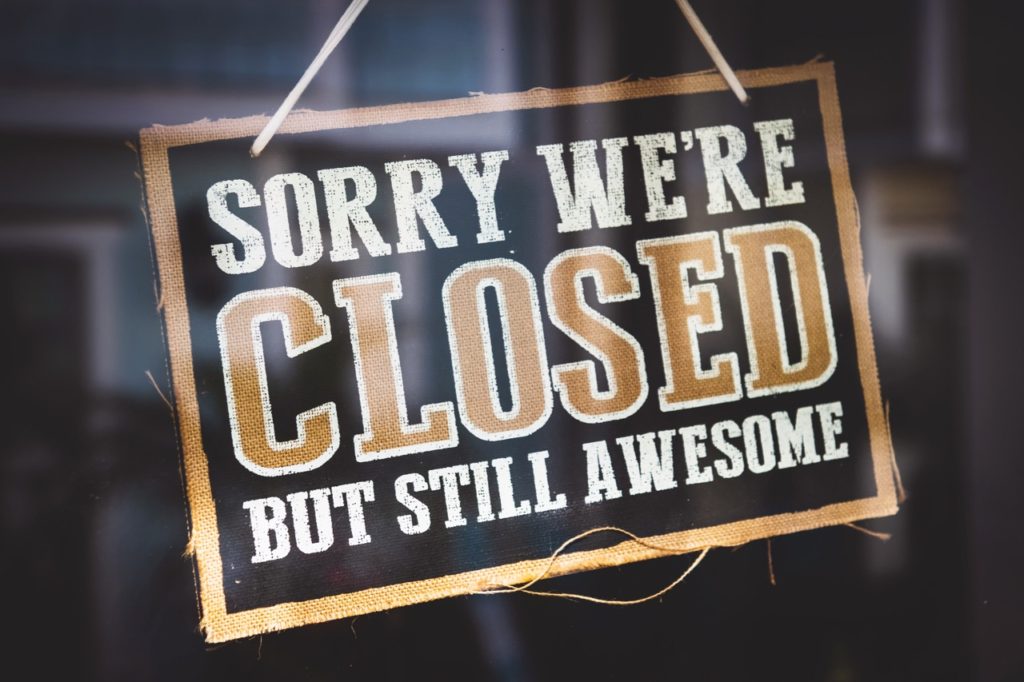Has The Toronto Bubble Finally, Popped?

In May 2020, the Canadian Mortgage and Housing Corporation predicted a 9 – 18% drop in housing prices. In a follow-up report in the fall, it doubled down hard on this prediction, forecasting that the average cost of a home could result in a drop as low as $825,000 in Toronto. By the end of February 2021, the average sale price for a home in Toronto surged to over ONE MILLION DOLLARS. The number of sales were up by +52% year over year, all while under a full lockdown. Despite all the fear-mongering purported in the mass media over the last year, not one of these dire predictions came to fruition. Over two decades of investing and brokering in Toronto has taught us one guiding principle at Fox Marin: “NEVER, EVER, EVER, BET AGAINST THE TORONTO REAL ESTATE MARKET.” Whoever has done so over the last two decades, despite a global financial crisis and now a pandemic, has lost out and lost handsomely. With vaccinations around the corner and an endgame to the worldwide pandemic insight, we will take a deep dive into what transpired over the past year and the short- and long-term future prognosis is for the Toronto real estate market. Buckle up! It is going to get interesting!
I have always been unabashedly bullish on the Toronto real estate market as an investor and broker. History will show I have been bang-on with my long-term predictions for Toronto’s growth and expansion. If anything, at times, the market has only ever outperformed my expectations. Over the years, I have clashed with many readers who had wrongly predicted or hoped for our real estate market to collapse. To those of you reading this now, you know who you are, and so do I.
When looking to make any significant investment into a market, a shrewd investor looks at the downside first, then builds their investment case upward. Before 2020, the Toronto real estate market’s greatest potential challenge was the subprime crisis in 2008/2009, which saw the global financial markets’ collapse. Most major cities’ real estate markets followed suit. In Toronto, the real estate market paused from its pricing appreciation trajectory for about six months, then continued completely unaffected.
Over the years, given my perpetually optimistic outlook, I have been asked, “If there is one thing that could derail the Toronto market, what would that be?” My answer was always the same: a stop in immigration. The GTA’s population has been growing at a steady clip of over 125,000 annually. The GTA’s population growth has been an enormous driver on the demand side of our real estate market. If the GTA’s population stopped growing, it would have a dramatic impact on our market. However, given Canada’s/Toronto’s international standing, how could that ever happen? It did, and Toronto was to face its most significant challenge to date.
Enter 2020 and the global pandemic. Our borders shut down and immigration into Canada came to a grinding halt, causing immigration to Toronto to flatline. According to some, this, combined with an exodus of homeowners moving outside the city in search of more space, would be the final death blow to our market. Summer and fall of 2020 brought the event that the CMHC had been banking on. After all these years, this was Toronto’s real estate market’s naysayers’ finest moment. Their time had finally arrived. Garth Turner, who made a career and name for himself by incorrectly calling for the demise of Toronto’s real estate market for decades, was primed to take centre stage and, at long last, take a bow. And yet, that moment never happened.

The Toronto real estate market has faced its most significant nightmare scenario with tremendous resiliency that would make any major global real estate market jealous. And this is just the start. With the implementation of vaccines, Canada is about to open the flood gates to immigration, targeting 1.2 million new immigrants over the next three years. According to Canada’s government, “To compensate for the shortfall of immigration and ensure Canada has the workers it needs to fill crucial labour market gaps and remain competitive on the world stage, the 2021 to 2023 levels plan aims to continue welcoming immigrants at a rate of about 1% of the population of Canada, including 401,000 permanent residents in 2021, 411,000 in 2022 and 421,000 in 2023.” This is highly relevant, as 50% of all immigrants who come to Canada ultimately settle in Toronto, meaning the GTA’s population is slated to have 600,000 new residents over the next three years. If you think we currently have a housing shortage and supply challenges in a pandemic, you haven’t seen anything yet.
While immigration has been a hot topic, especially south of the border, one of Toronto’s most appealing attributes is that it is the most multicultural city globally. Our vibrancy and energy are directly attributable to our diversity. An interesting statistic put out by the Canadian government noted that immigrants account for 33% of all business owners with paid staff, and 25% of workers in our health sector are immigrants. Substantial immigration is what makes our city so dynamic, and it provides a massive stimulus to our overall economy and the real estate sector. We at Fox Marin welcome opening up immigration to Canada and our fair city. While immigration will help increase demand in Toronto’s housing market, it is not the driver of affordability in our housing market, where the main culprit is a lack of supply resulting from decades of failed government policy.

Currently, Canada is very much in a recession, yet the Toronto real estate market is soaring. How is it possible for the real estate market to have decoupled from the economy with 11% unemployment? Economist Benjamin Tal labelled the current recession in Canada as the most asymmetrical recession in history. Typically, recessions happen top-down, meaning the wealthy get hurt from an economic crisis, and then the pain gets passed down to the middle and lower classes. This pandemic caused an atypical type of recession whereby the financial damages and job loss was incurred by low-income earners, like bartenders and flight attendants, while higher-income earners in industries like tech and finance have prospered.
Once middle and high-income earners realized that they would be most financially unimpacted by the pandemic, they became emboldened to take advantage of historically low-interest rates. Markets tend to be primarily affected by buyer psychology and behaviour, and real estate is no different. When people who watched the news and read dire reports like CMHC’s and saw the market continue to rise amid a recession, they began to realize that now was the time to upgrade for more space, with a vaccine on its way, and take advantage of historically low rates.
In a recent speech given by the governor of the Bank of Canada, Tiff Macklem stated that “we will need to continue to provide a stimulus for a considerable period because the economic recovery is still along way off. We have committed to keeping our policy interest rate at the effective lower bound until economic slack is absorbed so that our inflation target is sustainably achieved,” he said, repeating a line often used during the bank’s policy meetings. “And we have backed up this commitment with our program of large-scale government bond purchases.” The bank does not see its policy rate of 0.25% rising until 2023.
Furthermore, the BoC does not presently see the real estate market as overheating and feels it is making a positive contribution to the overall economy. When asked about low-interest rates’ effect on real estate, he stated, “I think right now the economy is weak … We need the support … We need all the growth we can get.”

During the pandemic, households have remained conservative with their spending: Household savings are up 912% for the same quarter last year. According to Statistics Canada, bolstered by the real estate and the stock markets, household net worth rose by more than $600 billion in the first six months of the pandemic. While overall credit card borrowing is dramatically down, we have seen optimizations of credit and mortgage refinancing by moving debt to far lower rates. A recent article in the Globe and Mail’s Rachelle Younglai described the situation as follows: “Non-mortgage debt fell in 2020 for the first time on record. Remarkably, as Canadian households have piled on huge amounts of mortgage debt, they have become, in aggregate terms, less financially vulnerable.”
The bottom line is that Canadian households are loaded with case but have nowhere to go and nowhere to spend it.
During most of 2020, the media and many watching the real estate market from the sidelines were concerned with the so-called mortgage deferral cliff. At the early onset of the pandemic, the banks coordinated with the federal government and offered a six-month no-questions-asked mortgage home deferral program. In total, 768,000 homeowners enrolled. Many pundits and would-be buyers/investors anticipated a collapse in the housing market once the deferrals ended, and homeowners who could no longer afford their mortgages would be forced to default, which never happened. At the end of the deferral program, homeowners commenced paying their mortgages as most homeowners were not economically affected by the pandemic and lockdowns. The mortgage arrears rate remained at 0.25% with no real change. Once we surpassed the end of the program in the fall of 2020 with no hiccups, it gave the market a substantial psychological boost of confidence.
COVID-19 is not the first, nor will it be the last global pandemic. Throughout history, over a dozen notable pandemics have killed tens of millions of people. History has shown, based on a fundamental understanding of human nature, that humans are social animals who need connection and a sense of community. Typically, after being constrained or sheltered for a long time, people will seek experiences and relationships they were deprived of while living in isolation when released from these constraints. Nicholas Christakis wrote a fascinating article in The Wall Street Journal in his exploration of studying human behaviour after a pandemic. In his article, Christakis mused, “If the Roaring Twenties following the 1918 pandemic is a guide, the increased religiosity and abstemiousness of the immediate and intermediate periods could give way to increased expressions of risk-taking, intemperance and joie de vivre in the post-pandemic period. People will relentlessly seek opportunities for social mixing on a larger scale at sporting events, concerts and political rallies.”
If you think there was an inherent value to universal healthcare and education, a social safety net and political stability in 2019, how much value will that have around the world in 2021 and beyond? The fact of the matter is that Canada and Toronto’s stock is rising worldwide, and the level of international attention, investment, and immigration over the next few years will make our past growth seem minuscule in contrast.
The feelings of euphemism and risk-taking, similar to the Roaring ’20s after the Spanish flu, combined with historically low-interest rates, households sitting on huge cash and disposable income, billions of government stimulus in our system, huge immigration, international interest, and investment into Toronto at a time when inventory is already severely constrained mean Toronto real estate prices are about to get a lot more expensive.

For thousands of years, cities have withstood wars, famine, and pandemics. Human beings are social animals that need personal connections with one another. Throughout the millennium, cities have been the epicentres of almost all cultural, scientific, and financial progress. We all want to return to the way life was before the pandemic, and when this crisis passes, COVID-19 will have been just a blip on the radar from a historical perspective. Many people thought after 9/11 that they would never work in a high-rise building or fly on an airplane. How long did that last? This crisis shall pass, and people will be moving back into cities and working in city centres when it does.
COVID-19 caused buyers to shun high-rise units in city centres favouring single-family homes with more space in the suburbs or outlying regions. That resulted in a divergence in prices for detached houses versus condos, but economists Benjamin Tal and Royce Mendes don’t think it will last. “Should COVID fade into the background, as is expected, the vibrancy of cities will return, and so will the demand for housing within them,” Tal and Mendes wrote in the report published Thursday.
Working who think they’ll be allowed to work remotely forever may be making a bad bet, they say. “The question for many employers is not if they will end work-from-home policies,” Tal and Mendes wrote, “rather, it’s simply a questions of when they will require employees to return to the office.” Even if people can work at home full-time, they risk missing out on other job opportunities available in cities, the CIBC economists said.
The downtown Toronto condo market softened and bottomed out in the fall and is now back on its way up. Arguably, Fall 2020 may have been the best time to buy a condo in downtown Toronto in the last two decades, but that window is closing fast. Bidding wars are now commonplace again in the downtown Toronto condo market, and transactions were up 85.5% in January, year over year while under full lockdown. As the pricing gap between houses and condos continues to widen, many people – buyers and renters alike – are looking to return to their offices later this year, and the downtown Toronto condo market is set to take off.

It is estimated that over 300,000 residents fled New York during the pandemic; sales in Manhattan are down 6.2% year over year, with the median asking price for a home at the end of January at $1,350,000. An economist from StreetEasy, Nancy Wu, stated in a recent interview that “there’s currently no end in sight when it comes to falling [New York City] real estate prices … There is no end in sight for how long prices will continue to decline. This 6% drop in Manhattan [sales] seems to be the first milestone of what’s to come.” Though New York will rebound, it’s fascinating to see how different the Toronto market has behaved than New York during this pandemic.
Toronto has star power. Drake, Justin Bieber, Sean Mendes, The Weeknd, and the Toronto International Film Festival call Toronto home. If they aren’t here already, every luxury hotel brand, chef, and starchitect all want to be. The province of Ontario estimates that the GTA population will reach 9.2 million by 2040 – surpassing the current population of London, England. There will be a time in the not-so-distant future, given the desirability of what Toronto has to offer, that its real estate prices will eventually surpas Manhattan’s. While it might take a decade or two for that to happen, the reality is that TOronto is expensive and will likely get much more costly. The choice you must make is to complain about it and hope for another outcome or embrace what this city has to offer to its fullest by taking advantage of the financial opportunity that lies ahead. The choice is yours, but the one thing I would advise against is to bet against it or wait for the perfect moment as you just might be priced out forever.